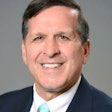
"Hey, Doc, I need to see you!"
I work in an office building that has two dentists. I have been in that building for more than two decades. Office tenants come and go, some more temporary than others. One of my long-term patients moved into a space immediately down the hall from me.
 Sheri B. Doniger, DDS.
Sheri B. Doniger, DDS.I use the term "patient" very loosely here: He is one of those patients who only call when there is an "issue" or an emergency. This time it was "I lost a tooth or I think I did." Of course, he had no pain.
This is an interesting patient. He is probably one of the most brilliant people I know. He is both a scholar and a gentleman. But, as brilliant as he is, he hates going to the dentist. He is one of those people who truly only comes on an emergent basis. We only are able to do preventive visits with him when he loses a tooth on his partial or, as in this case, loses part of a real tooth.
It is really great to have him down the hall. When I see him, we always talk about the state of our grandchildren or politics (yes, politics is usually an avoided subject with patients, but the discourse is always outstanding and informative). Even though we see him almost every day, we exchange pleasantries and cajole about him needing an appointment. He just smiles and says, "Thanks, Doc, great seeing you!"
Obviously, his lapses in care are not from any lack in trying. You are lucky with some patients to have them answer the phone (usually we are greeted with a voice message on a cellphone or an unanswered email), but this patient we truly see on a weekly basis!
The question I asked when he saw us in the hall: "How long has that tooth been broken?" His response: "For a while." No pain, no problem. Obviously, he didn't feel the need to call. Dental issues are not high on his "to-do" list.
So, as usual, we get him in the soonest possible appointment that fits his schedule and manage the issues. As I said, this patient is the patriarch of one of families that has been in my practice for 30 years. He comes and goes, as he sees fit, but is never "finished" with his dentistry, no matter how much discussion we have.
Some practitioners are upset with patients like this. I find it a part of the fabric of our dental practices. These patients are loyal. They will not see anyone else. They don't complain, even when they have major (in our minds) dental issues. Yes, when he loses a lateral incisor on his maxillary partial, he is quicker to call, but for this "broken" tooth, he was fine until he remembered he needed to get it "fixed."
I will say, I wouldn't want 90% of my practice to be composed of patients like this gentleman. The occasional, casual patient -- this is not bad. He wasn't even particular about when he came in, although we did manage to get him in sooner rather than later.
While he was in the treatment room, we did restore his tooth, performed his preventive visit, and discussed the need to have further work done on a few other impending "broken teeth." He just smiled and said, "Thanks, Doc. See you next time." We all know, next time in the chair, won't be for at least a year or so. No matter how well we communicate his issues.
Sheri B. Doniger, DDS, practices clinical dentistry in Lincolnwood, IL. She is currently vice president and president-elect of the American Association of Women Dentists and editor of the American Association of Women Dentists "Chronicle" newsletter. She has served as an educator in several dental and dental hygiene programs, has been a consultant for a major dental benefits company, and has written for several dental publications. You can reach her at [email protected].
The comments and observations expressed herein do not necessarily reflect the opinions of DrBicuspid.com, nor should they be construed as an endorsement or admonishment of any particular idea, vendor, or organization.


















